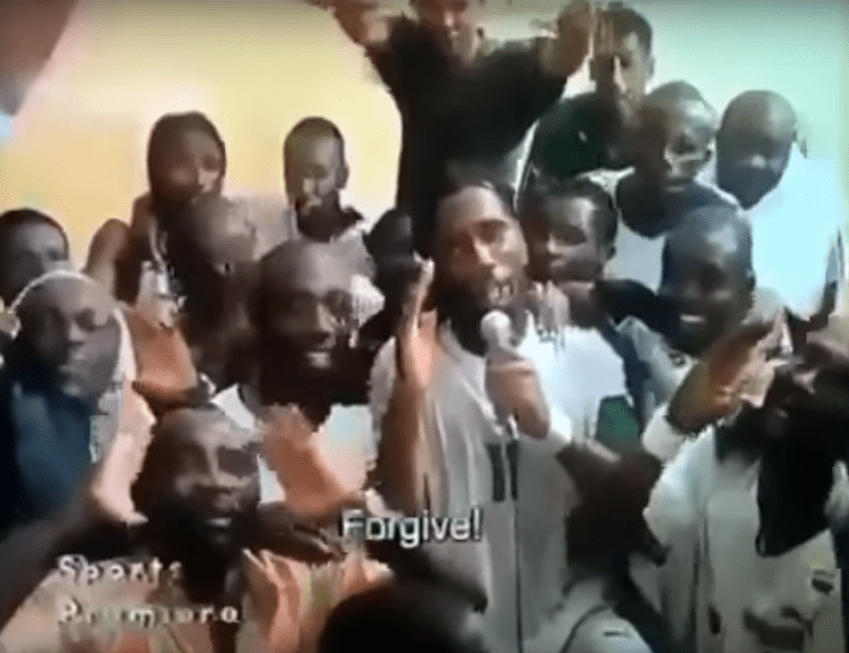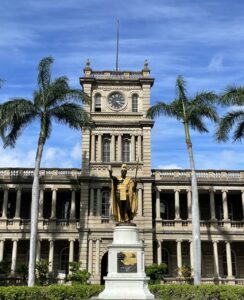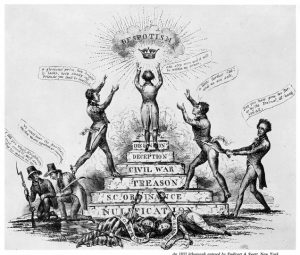The King of Sports, Football (American soccer). Every four years, the world watches the FIFA World Cup. Every four years, people from all parts of the world stop everything they’re doing in order to watch their country play football. Every four years, billions of dollars are invested in this event.1 Many praise it, many criticize it, but what nobody can deny is that football has a power to unite an entire nation and give its people hope and joy, whatever their condition or situation might be. Did you think football was irrelevant and useless? Well, you would be wrong. The power of football is immense, and the story you are about to read will show it. Yes, football, eleven players looking to put a ball in a goal, was able to end a civil war!

Despite moving to France at the age of five, Drogba never forgot his roots nor his people.5 Despite having the possibility of changing his nationality to French citizenship, which would have allowed him to play with a much more competitive team and with greater aspirations to win a World Cup (the ultimate prize of every football lover), love of his homeland was of greater importance to him. When Drogba returned to Côte d’Ivoire, he not only found a football team in ruins and with little hope of achieving any important achievement, but he also found a country in ruins and with hopes of progress almost destroyed.
It all began in September 2002. A group of military opponents of the Ivorian government decided to take the main cities of the country as a symbol of rebellion. The rebels attempted a coup, but it did not work, so they took refuge in the north. That was the beginning of the civil war in Ivory Coast.6

Despite the thousands of deaths during the first three years of the civil war, there was a reason to celebrate in Côte d’Ivoire: football. In 2005, Côte d’Ivoire obtained its first classification to a FIFA World Cup in all its country’s history. It came in a game against Sudan, in which the Ivoirians won 3-1.7 And then, with everyone celebrating that epic result, the captain of the Ivory Coast team, Didier Drogba, wanted to turn that celebration into a momentous moment for the history of the country. Kneeling, and surrounded by all the different races that made up the Ivory Coast Football Team, he turned to the national television camera, and began his message:
“Men and woman of Cote d’Ivoire from the North, South, Centre, and West. We proved today that all Ivoirians can co-exist and play together with a shared aim: to qualify for the World Cup. We promised you that the celebration would unite the people. Today, we beg you, on our knees: Forgive! Forgive! Forgive! The one country in Africa with so many riches must not descend into war. Please lay down your weapons. Hold elections. All will be better. We want to have fun, so stop firing your guns!” 8
Drogba’s message touched Ivoirians, because the country was affectionate at that moment of great celebration, and because they needed someone to open their eyes. After more than four-thousand dead in three years, who better to do so than the greatest idol who, at that time, was already elevated to the level of eternal legend. A week after that gesture, the two sides agreed to a cease-fire; it was the beginning of the end of the war.9

Although “Didi”’s speech was well received by both sides of the confrontation, there were still things to resolve in order to say that “the civil war was over.” Thus, in 2006, when Drogba received the prize for best African footballer of the year, he decided to return to Ivory Coast to show his country the precious trophy. But he did not go to his birth city, the capital of the country: he traveled to Bouaké, one of the cities that had been occupied by the rebels opposed to the government, where they had installed their headquarters. When he arrived, Drogba also gave a speech that again spoke of the importance of unity and peace for the progress and development of the West African country.
After that episode, in 2007, the captain of “The Elephants” (nickname given to the Ivorian soccer team) proposed something that was really daring and dangerous in case it materialized. Drogba’s aim was to realize an official match of the national team in the same city, Bouaké. His goal was to bring the unity of the country to its maximum expression on the most conflicted place, the capital of the rebels. It was not easy, but with the mediation of Drogba, the political and football authorities agreed. It was clear that it was not going to be a normal football game. That date, June 3rd of 2007, was The Day for Ivoirians. There was strong tension in the air, because both the people of Bouaké and those of the capital were present in the stadium. The pressure increased a lot more when the leaders of the Ivorian government arrived, who were with the rebels for the first time without bullets separating them. Miraculously, the king of the sport was able to bring rebel leaders, government leaders, and soccer fans together in one place. Then, the national anthem started, and the Ivoirian president Laurent Gbagbo and the rebel leader, Guillaume Soro, sang it side by side. Drogba knew at that moment that the Civil War was over. “To see the two sides together, to sing in unison the hymn of my country was very special. I felt Côte d’Ivoire was born again,” declared the great striker. Not surprisingly, the following day, after Ivory Coast’s 5-0 win against Madagascar, a local newspaper called “Five goals to erase five years of war.”10
Drogba ended up winning all the hearts of the Ivorian people, when in 2009 he decided to donate a hospital in Abidjan, the capital of his country. He did it with the three million pounds he had received after carrying out an advertising campaign with a well-known brand of soft drinks. He just established one condition: that the hospital services were totally free.11
In 2010, the well-known TIME magazine included Drogba among the 100 most influential people in the world, because of his peace objectives and results in the Ivorian Civil War.12From there, he became a United Nations Goodwill Ambassador. In addition, Drogba has a foundation, which built five hospitals in Côte d’Ivoire. The hospitals in Abidjan, Yamoussoukro, Man, Korhogo, and San Pedro, which cost five million dollars, were paid for with Drogba’s own money.13 In football, you can be an idol based on goals and titles. But Drogba is much more than an idol. He is a hero, almost a saint, in Ivory Coast.

Like him, there are thousands of artists and athletes who enjoy popularity and unanimous approval in their countries. The great majority of these artists are blinded by fame and lust. They squander all their money and end up consuming drugs or are stuck in scandals of sexual abuse, tax evasion, or alcoholism.14 This was not the case for Didier Drogba. The Ivoirian used all his influence to build a better future for the next generations of Ivoirians. A World Cup qualification is an invaluable gift for a football lover, but something that even surpasses this is what “Didi” did: give his compatriots peace. Let us hope that the case of Drogba will not be the only one, and that these influential people can use their popularity for the good of others, for peace.
- Veysel Avsar and Unal Umut, “Trading Effects of the FIFA World Cup,” Business Source Complete, no. 3 (May 2014): 315-329. ↵
- Encyclopædia Britannica, September 2014, s.v. “Drogba, Didier,” by Jack Rollin. ↵
- Ishaan Tharoor, “These global sporting events totally dwarf the Super Bowl,” The Washington Post, February 05, 2016. ↵
- Grant Wahl, “In Praise of Drogba,” Sports Illustrated 116, no. 22, (May 28, 2012): 53. ↵
- Encyclopædia Britannica, September 2014, s.v. “Drogba, Didier,” by Jack Rollin. ↵
- Abu Bakarr, “Democracy and Civil War: Citizenship and Peacemaking in Cote d’Ivoire,” African Affairs no.1 (February 2010): 513. ↵
- Peter Law, “The World at their feet: five African representatives will be among 32 finalists vying for honors,” New African, no. 452 (June 2006): 59. ↵
- Paddy Agnew, “Drogba calls for peace as football unites Ivory Coast,” Irish Times (February 07, 2006): 12. ↵
- Grant Wahl, “Soccer Savior,” Sports Illustrated 112, no. 22 (May 2010): 52. ↵
- Alex Hayes, “How Drogba united the Ivory Coast Chelsea star acclaimed by his countrymen after ending five-year civil war,” Daily Telegraph (August 8, 2007): 22-23. ↵
- Laura Williamson, “It’s Saint Drogba!,” Daily Mail (November 12, 2009): 96. ↵
- Richard Stengel, “The 2010 TIME 100,” Time Magazine (April 2010). ↵
- John Hutchinson, “The Didier Drogba Foundation,” The Sun (February 17, 2012): 24. ↵
- Lawrence Wenner, Fallen sports heroes, media, and celebrity culture (New York: P. Lang, 2013): 201. ↵



71 comments
Ashley Tumlinson
Great article! I am not a huge follower nor fan of soccer! However, reading this article kind of made me wish I did follow the sport more. The words you used painted a great picture – in my mind as a reader – about how Didier Drogba was so much more than just a soccer player. It is truly breathtaking how much just one driven person can make a difference in a community. This article gives me hope that there are still some amazing people in this world despite all the horrible things going on.
Valeria Hernandez
Josemaria Soriano wrote an exceptional article providing a well written and explained story about the unity of opposing sides. Most importantly he is able to explain the unity of the counties by the power of one man and a beloved sport “football.” Didier Drogba story is inspiring as he had the power and ability to unite and end the D’Ivoire Civil War.
Rebekah Esquivel
I don’t know much about soccer and not much about anything that goes on within the teams. However, this article was very interesting to me. It kept me interested the whole time that I was reading it. I believe that Didier Drogba should be considered as way more than just a football player. He needs to be recognized as a role model. It is amazing how an athlete managed to stop the civil war within his country and give back so much with his wealth and power in the sports world to his country. I always love to see when people who are now famous and able to make a big impact never forget where they come from and are able to give back to the community and area that helped make them who they are today. I found this article very informative and heart warming to read.
Sebastian Castro Ramos
My father has always told me football is more than a sport. Some make lifelong friendships through it, just like him. Football is also something that unites people. Similar to Côte d’Ivoire, on 2010 Honduras classified to the World Cup for the second time (the first time in 1982) and there were some political tensions in the country. However, the day Honduras classified to the world cup, everybody forgot the troubles of the country, the people celebrated all night long, and the next day was given as a holiday to continue the celebration. The people of Honduras felt proud of their country. I am not a big fan of football, but I do recognize it has the power to bring people together, and even contribute to the end of a civil war, like in Côte d’Ivoire.
Alejandra Mendez
This was an interesting and very informative article. I have an interest in soccer but stick to Mexico’s soccer team so only really watch when they are playing or if it’s the World Cup. I’m a little disappointed I had never heard of Didier Drogba until having read this article. It’s amazing what someone, who isn’t even close to being a politician, can do in the world of politics. It is very inspirational and I wish more people used their influence to do something good for their own people or at least speak out about an important issue like Didier did.
Rafael Azuaje
It’s amazing what good can happen when someone with good intentions and a massive audience speaks out. There is also a massive risk involved. This article makes me think of Colin Kaepernick and other NFL players in the US who have been protesting during the national anthem. I won’t claim that his protest is the same as Drogba’s, but I do know that the ideas he has brought awareness to have reached across America. Even some high school students have begun following his example. Time has yet to tell what will happen concerning this.
Marco Picardo
It’s incredible how one man could have such an impact on a nation. To think, Drogba put an end to a civil war makes him a great role model. He is a true leader that took charge during a tough time and brought his people out of that time. Drogba not only was a footballer, but he answered the call as a United Nations Goodwill Ambassador as well. What he did should be remembered. Great article.
Michael Mandujano
Prior to reading this article, I had no idea who Didier Drogba is, because I rarely follow professional Soccer. However, after reading this well-structured article, I gained a greater understanding how one individual can inspire peace and potentially put an end to a tragic war. Drogba was a prestigious athlete and capable of influencing unity within the neighboring countries because they loved the sport of Soccer. Overall, I really enjoyed the images that were depicted throughout this article.
Carlos Aparicio
It is really amazing how one person from Africa was able to put a stop to a civil war. I was a real big fan when Didier Drogba was a professional soccer player with Chelsea Football Club in England. What made him a role model was the way he had a positive affect to his people in his country. What really struck me was that he became a United Nations Goodwill Ambassador, has his own foundation and was able to build 5 hospitals! I really enjoyed this article because of heights much detail was put into it.
Christine Sackey
This was a great article that was very well written. I was completely immersed with the article the whole time I was reading it. Words are very powerful and this article defiantly showed that. Didier Drogba was more than football player but I believe he is a role model. Not only did he stop the civil war in his country, but he gave back millions of dollars to help the country. I think that it is great that he never forgot where he came from because that is what makes people who they are. Overall, this was a very touching article that shows how beautiful some people can be.